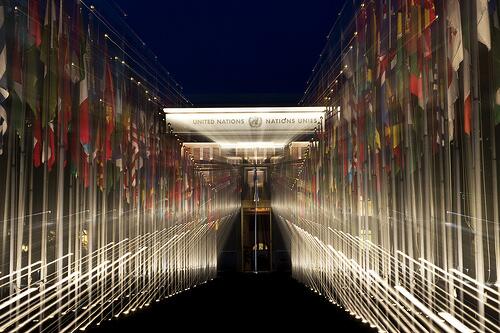The ICJ together with ECRE, the AIRE Center and the Dutch Council for Refugees submitted a third party intervention to the UN Committee on the Rights of the Child in case D.D. v Spain 4/2016 pending in front of the Committee.
The case concerns a collective expulsion of a child from a Spanish enclave of Melilla to Morocco. The case has been declared admissible by the Committee in June 2017.
The UN CRC allows for individual complaints since April 2014 for children against countries that ratified its Third Optional Protocol on a Communications Procedure.
The current submission of the ICJ and partner organisations is focusing in particular on State’s jurisdiction (CRC article 2.1), access to the territory and non-refoulement (CRC articles 3.1, 6, 20, 37), specific safeguards for children (CRC articles 3.1, 12 and 22) and collective expulsions (CRC articles 3.1, 20 and 22).
The intervention analyses the legal principles and jurisprudence related to scope and content of States Parties’ obligations, without reference to the particular facts of the case before the Committee.
The submission will also be considered by the Committee when examining the case. It is also now being transmitted to both parties for comments, in accordance with Rule 23.2 of the Committee’s Rules of procedure on the OPIC.
The intervening organisations argue that:
- A State has jurisdiction over children who are subject to its authority or effective control on or at its land border, whether within or outside its territory. When a State Party exercises its jurisdiction over a child, its responsibility is engaged and it is required to comply with its international obligations of human rights protection, including under the Convention on the Rights of the Child (CRC), particularly as regards the assessment of the best interests of the child and the child’s right to be heard. Where a State Party is an EU Member State, it is additionally obliged to ensure the respect of the child’s best interests, protection and care necessary for the child’s well-being as well as the other child-specific guarantees under EU law.
- Children who are subject to the authority or effective control of a State on or at its land border must be granted access to the territory as a prerequisite to the initial assessment process and further afforded the opportunity to meaningfully raise objections to their transfer, as the principle of non-refoulementand the prohibition on collective expulsions require. The prohibition of refoulement on certain grounds is of an absolute nature in international human rights law and entails positive duties on the part of States, including to grant children the possibility to present the reasons against their return, to ensure their access to legal assistance and to a guardian, and to perform an individualized assessment to verify and evaluate the risk of refoulement.
- The prohibition of collective expulsion requires a thorough and rigorous assessment, including the examination of the particular circumstances of those forming part of the group of non-nationals concerned by the measure. This obligation also entails their effective identification and registration as well as information about, and access to applicable protection procedures and remedies where relevant. These safeguards apply whenever the individuals concerned fall within State Parties’ jurisdiction, including in circumstances when jurisdiction is exercised extraterritorially and irrespective of their migration status.
- When children are involved, the prohibition of collective expulsion additionally requires compliance with child-specific rights and corresponding tailored procedural safeguards. Collective expulsion entails a violation of the primary obligation to assess the best interest of the child in each individual case, which must be carried out prior to any decision to return or refuse entry or any other decision affecting children and must be adequately reflected in this decision.
UN-Third-party-intervention-DD-v-Spain-Rights-of-the-Child-May-2018-ENG(full PDF in Eng)

